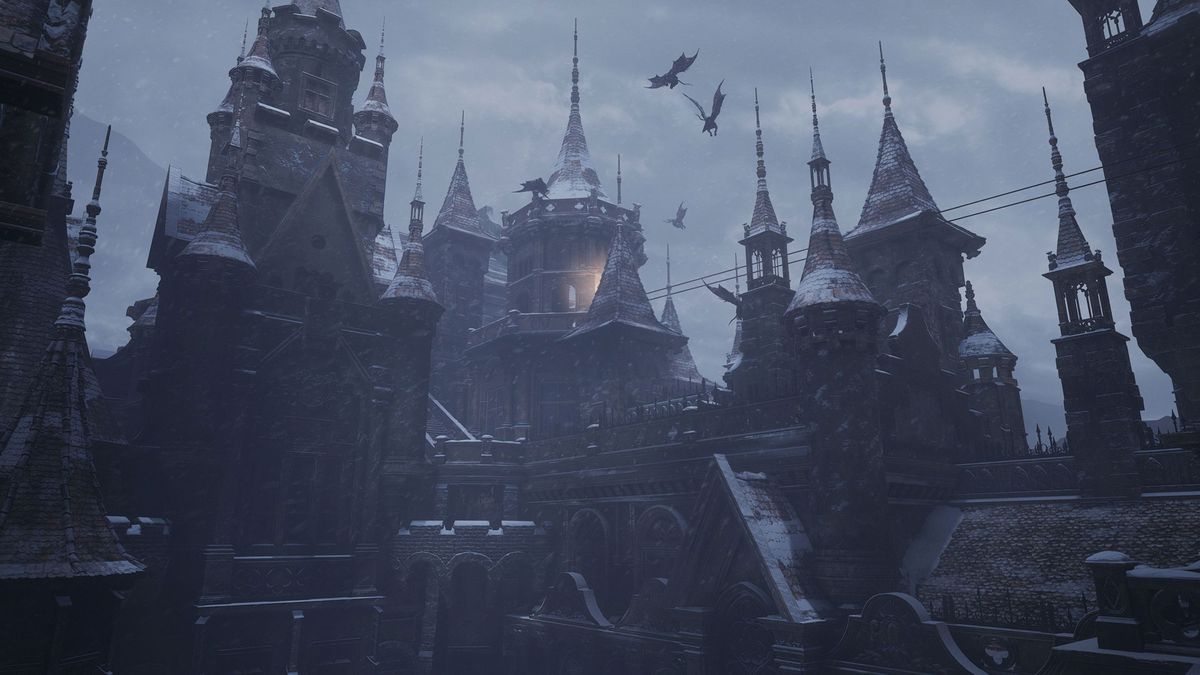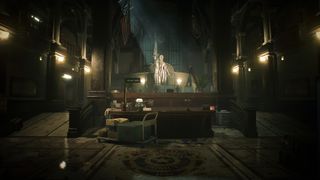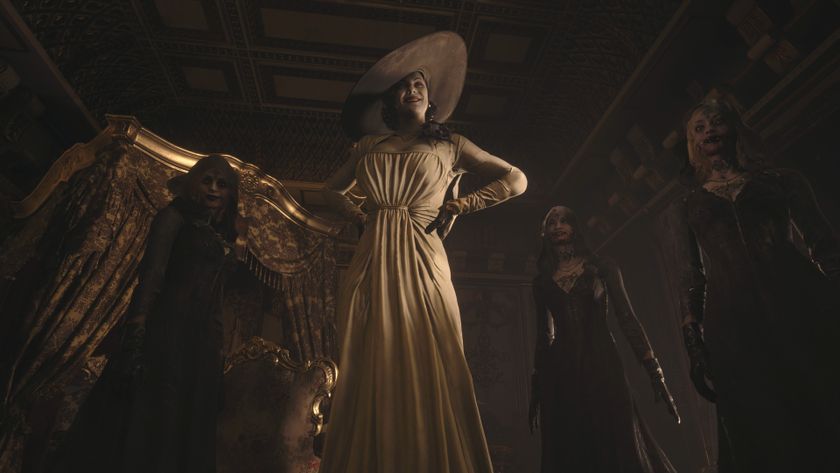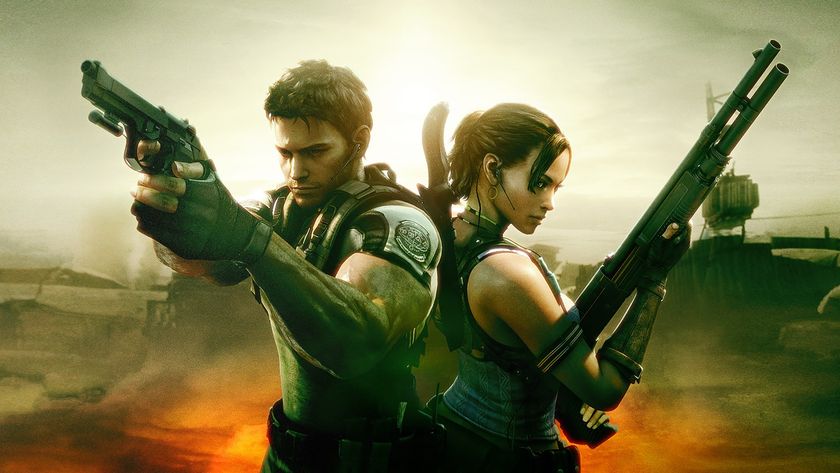Jump scares, don't care: why I long for more exploration-based horror in 2022
I've had my fill of jump scares, now give me incidental horror through setting and discovery

They say a picture paints a thousand words. But while playing Resident Evil Village over the Christmas break, one particular in-game photograph conjured just a handful of expletives. Those of you who've finished the latest entry to Capcom's abiding survival horror series will know the one. The one found on that workshop bench deep within the game's isolated Eastern European hamlet. The one with that butchered Lycan front and centre, scarred, stapled, with a grotesque power source wedged into a wound on its back. The one that alludes to the terrors that inevitably lie ahead. That's right. That one.
Away from Resident Evil Village's headline scares – the swarming, feral natives; the blockbuster showdown with Lady Dimestrescu; the David vs Goliath encounter with Urias inside the Stronghold – the subtlety of this finding is equally terrifying. Solving the clue penned on the back of this battered black and white snapshot lets you obtain a key item, therefore its placement is deliberate. But the sense of discovery, of being led to believe you've snuck a peak behind the velvet rope, is what makes it special. For all Resident Evil Village's jump scares and violent battles are terrifying, I pine for more exploration-based horror from the genre in 2022.
Itchy, tasty


Creativity and risk are driving modern horror games – but where does the genre go next?
Not that Resident Evil hasn't performed this trick with aplomb before. The wider series is littered with memos and notes that broaden the context of each game's story arc – background features that have been a staple of the survival horror genre since the '90s. The famous 'Itchy, Tasty' line from the original 1996 Resident Evil appears in an NPC animal keeper's diary, as he unwittingly tracks his mental and physical decline while succumbing to the T-Virus; while the watchman's journal that features in Resident Evil 2 is another especially poignant recount of an innocuous Racoon City policeman's final days.
The striking difference between these examples and the bloodied Lycan featured in that Resident Evil Village photograph, though, is how gorgeous modern Resident Evil is – so much so that, for me, exploring every nook and cranny is now central to what makes these games great. Setting plays such a key role in Ethan Winters' latest tale, on a far grander scale than anything that's come before it, and while much of the story still unfolds in a predetermined order, the scope for additional exploration exists by way of bonus treasures housed within optional areas. And when the journey and its window dressing are so strikingly beautiful along the way, seeking out those surplus rewards is a no-brainer.
I felt the same when The Evil Within 2 pivoted towards an open-world map in 2017, something that felt elevated by the game's slow-burn narrative. Being given the autonomy to freely explore is hardly commonplace in the horror genre, so combing the deadly Union sandbox for supplies and story snippets really brought the zombie world to life, and made me appreciate the heights of its horror peaks while fighting to survive in its troughs. How developer Tango Gameworks (led, of course, by Resident Evil creator Shinji Mikami) approaches Ghostwire Tokyo later this year will be interesting – especially given the fact it appears to be set in a sprawling futuristic city, and, like modern Resident Evil games, will switch to a first-person camera view.
Worlds of pain

"I suspect setting and exploration will also play a huge part in the next rollout of horror games within this relatively new console cycle. And I can't wait."
To this end, Techland's Dying Light deserves every plaudit it gets for its level-design and open-world-building, and I can't wait to see where Dying Light 2 takes us next month. I'd argue that the likes of Alien: Isolation is at its best in its quieter moments, when it's what you can't see that's most terrifying, as you prepare physically and mentally for the Xenomorph's next heart-stopping appearance. The same can be said for the Dead Space series, which makes its incoming remake – scheduled for release in the latter half of this year – all the more exciting. P.T. was, in essence, an entire demo dedicated to exploration and interpreting story-building snippets, whereas Bloober Team's Layers of Fear leveraged player interpretation to help us climb inside the diminishing mind of an unreliable narrator. Published by Feardemic, a subsidiary of Bloober Team itself, Dark Fracture is a psychological horror game that's due in 2022 and promises much of the same.
From the PUBG universe-set The Calisto Protocol to expert storytellers LKA's Martha Is Dead; from Red Barrel's The Outlast Trials to the P.T.-styled Luto; and from S.T.A.L.K.E.R. 2 to the action RPG-flavoured terrors of Elden Ring, not to mention all of the aforementioned – it appears fans of the horror genre, and horror as it bleeds into adjacent spaces, will be well-served in the coming months. I suspect setting and exploration will also play a huge part in the next rollout of horror games within this relatively new console cycle. And I can't wait.
Sign up to the 12DOVE Newsletter
Weekly digests, tales from the communities you love, and more
I admittedly came late to the Resident Evil Village party, but playing over the holidays crystallised my desire for unsettling exploration over on-rails action-heavy set-pieces. From the majestic Castle Dimestrescu to the haunting Beneviento House, the industrial Heissenberg's Factory and everything in between, Resident Evil Village balances those plates well. To my surprise, it wasn't the 9' 6” aristocrat who kept me up at night after the credits rolled. It wasn't the oversized, corridor-stalking baby either; nor the gravity-shifting, mallet-wielding brute in the cowboy hat. It was that damned 4.2 x 3.5-inch photograph and what it'd later represent. And that, for me, is psychological survival horror at its best.
Excited for what lies ahead this year? We're covering the biggest games of the new year with exclusive interviews, hands-on impressions, and in-depth editorials in our month-long Big in 2022 roundup!

Joe Donnelly is a sports editor from Glasgow and former features editor at 12DOVE. A mental health advocate, Joe has written about video games and mental health for The Guardian, New Statesman, VICE, PC Gamer and many more, and believes the interactive nature of video games makes them uniquely placed to educate and inform. His book Checkpoint considers the complex intersections of video games and mental health, and was shortlisted for Scotland's National Book of the Year for non-fiction in 2021. As familiar with the streets of Los Santos as he is the west of Scotland, Joe can often be found living his best and worst lives in GTA Online and its PC role-playing scene.











